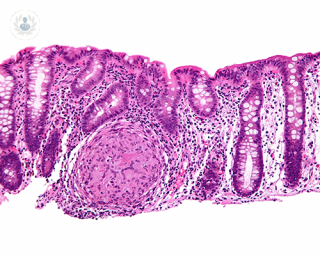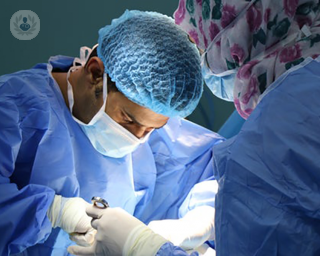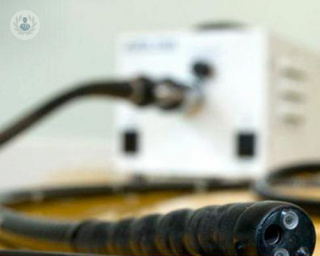Colitis
Dr Richard Sarsam - Gastroenterology
Created on: 11-13-2012
Updated on: 03-28-2023
Edited by: Karolyn Judge
What is colitis?
Colitis refers to the inner lining of the colon becoming inflamed. Colitis can be a symptom of a condition that affects other parts of the body, which causes fevers, chills, fatigue and dehydration.
There are many types of colitis that are usually classified by the cause of each one. The two most common types of colitis include ulcerative colitis and Crohn’s disease, which are types of inflammatory bowel disease (IBD). Ulcerative colitis causes other manifestations in the body, which include mouth ulcers, swelling of the joints and skin inflammation.

What are the different types of colitis?
Types of colitis are categorised by what causes them. Some of the different colitis types include:
- Ulcerative colitis and Crohn’s disease – these two types of colitis are classified as inflammatory bowel disease. Ulcerative colitis occurs when the immune system overreacts to bacteria in the digestive tract. It begins in the rectum and spreads to the colon.
- Pseudomembranous colitis – this type of colitis occurs from the overgrowth of a bacteria known as Clostridium difficile. Normally found living in the intestine, this bacteria does not usually cause problems because of the balance with the good bacteria. Clostridium difficile takes over when medications such as antibiotics destroy the good bacteria. The toxins that are released cause inflammation.
- Ischaemic colitis – this occurs when the blood flow to the colon is cut off or restricted.
What causes colitis?
The most common causes of colitis include:
- Infections or viruses
- Loss of blood supply
- Chronic diseases
- Allergic reactions
What are the signs of colitis?
The symptoms of ulcerative colitis may include:
- Diarrhoea;
- Abdominal pain and cramps;
- Rectal pain;
- Rectal bleeding - experiencing a small amount of blood in the stool;
- Desperation for the toilet;
- Inability to defecate even though there is a feeling of urgency;
- Weight loss;
- Fatigue;
- Fever.
How is colitis diagnosed?
A physical examination by a specialist helps to determine whether the cause of a patient’s symptoms is colitis. The doctor will take the patient’s blood pressure and check their temperature for fever. There is an examination of the abdomen to check if there is a feeling of tenderness. Bowel sounds are listened to through the use of a stethoscope. A blood test can measure haemoglobin and haematocrit levels to check for anaemia. Stool samples may also be collected to search for bacterial and parasitic infections as the cause of colitis. The stool may be tested for blood too.
How is colitis treated?
The treatment of colitis depends on how bad the disease is within the individual patient.
Colitis treatment usually involves a change in diet, nutritional supplements and medication being prescribed. In severe cases, surgery may be required. Mild colitis responds to medicines such as steroids and anti-inflammatories. More severe colitis symptoms will require stronger medication such as immunomodulator medicines, which suppress the immune system to prevent inflammation.
Surgery may be required to remove the large intestine, however this can cause other problems in different areas of the body.
Foods to avoid:
- Alcohol and fizzy drinks;
- Caffeine;
- Dairy products;
- Raw fruits and vegetables;
- Legumes.
Foods to incorporate into your diet:
- Omega-3 fatty acids, like those found in salmon;
- Probiotics , such as kefir;
- Iron-rich foods like green vegetables;
- Turmeric;
- Folate-rich foods.









